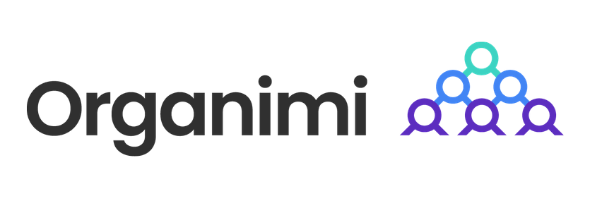When a position becomes available, hiring managers might first look to fill it from within rather than go hunting for candidates externally. Existing employees often make excellent candidates. They’re already in tune with the organization’s mission, values, and workflows, which makes it easier to onboard them into a new role.
In addition, it’s often the case that employees aspire to move up the career ladder and take on more advanced roles with better benefits and opportunities. This makes it much easier, faster, and cheaper to find suitable candidates. Before an employee can take on a new role, however, they must first overcome the internal interview.
What is an Internal Interview?
An internal interview refers to the process of assessing and evaluating employees within a company for potential job openings or promotions. It involves considering candidates who are already working within the organization and are seeking advancement or a change in their roles.
Internal interviews are usually conducted when a position becomes available, and the company wants to explore existing talent before looking externally. This approach provides an opportunity for current employees to demonstrate their skills, experience, and suitability for the new role. It also allows the organization to leverage its existing workforce by recognizing and rewarding internal talent.
How Does an Internal Interview Work?
The process of an internal interview may vary from one organization to another, but it generally involves the following key steps:
Job Posting and Announcement: The company announces the job opening internally, typically through email, intranet postings, or other internal communication channels.
Application and Selection: Interested employees submit their applications, which may include a resumé, cover letter, and any other required documents. The company’s HR department or hiring managers review the applications and select candidates for further consideration.
Interview Rounds: Selected candidates are invited to participate in interviews, which can involve one or multiple rounds. The interview panel may include HR representatives, managers, team members, or other relevant stakeholders.
Decision-Making: After the interviews, the hiring team or relevant decision-makers review the candidates’ performance and qualifications. They consider factors such as interview feedback, past performance, potential for growth, and overall suitability for the role.
Selection and Offer: Based on the evaluations, the company decides on the successful candidate(s). The selected employee(s) are offered the new position, and negotiations, if any, take place regarding salary, benefits, and start date.
What are the Benefits of an Internal Interview?
Internal interviews offer several benefits, both for the organization and the employees involved. Here are some of their key advantages.
Knowledge of the Organization: Internal candidates are likely to have a deep understanding of the organization’s culture, values, and goals. They’re also going to be familiar with the company’s processes, systems, and stakeholders, which can significantly reduce the learning curve associated with external hires. Their existing knowledge can help them quickly adapt to the new role and contribute effectively from day one.
Retention and Motivation: Offering internal career advancement opportunities through interviews can boost employee morale and motivation. It signals that the organization values and recognizes the potential of its existing workforce. By encouraging employees to grow within the company, organizations can improve employee retention rates and reduce the risk of talented individuals seeking opportunities elsewhere.
Cost and Time Savings: Conducting internal interviews can be more cost-effective and efficient compared to external hiring processes. External hires often require extensive recruitment efforts, advertising, screening, and onboarding, which can be time-consuming and expensive. In contrast, internal candidates are already familiar with the organization’s procedures and may need less training and orientation, resulting in cost and time savings.
Enhanced Succession Planning: Internal interviews play a crucial role in succession planning by identifying and grooming future leaders from within the organization. By providing growth opportunities and preparing individuals for higher-level positions, companies can ensure a smooth transition when key roles become vacant. This proactive approach helps maintain continuity, prevents knowledge gaps, and minimizes disruptions during leadership changes.
Improved Morale and Engagement: Internal interviews can boost employee morale and overall job satisfaction. When employees see that there are growth opportunities within the organization, they are more likely to feel engaged and invested in their work. The prospect of career progression motivates individuals to perform at their best and continually develop their skills, fostering a culture of learning and growth within the company.
Rewarding Loyalty: Internal interviews provide a platform to reward employees for their loyalty and long-term commitment to the organization. Recognizing and promoting individuals who have demonstrated dedication and consistently performed well can instill a sense of loyalty among employees. It demonstrates that tenure and hard work are recognized and valued within the company.
Questions to Ask During an Internal Interview
An internal interview isn’t much different from any other interview, so identifying the right questions to ask during an internal interview is still important.
One of the key areas to focus on is the candidate’s motivation. Somebody without a clear or firm motive for applying to a role might mean that they struggle if they’re successful. Some questions that you can ask to assess motivation include:
- What made you interested in this new role?
- What do you like about your current position?
- What keeps you motivated to continue working for the company?
- Where do you see yourself five years from now?
- If you aren’t successful, will you continue in your current position?
It’s also important to assess a candidate’s behavior. This is because employees who are interested in moving up to more senior or mission-critical positions need to be professional and have a clean track record. Some questions that you can ask to assess behavior include:
- Have you spoken to your current supervisor about this interview?
- How would your co-workers describe you?
- How would your supervisor describe you?
- What do you do if you disagree with your manager?
Leadership skills are also essential when moving up the organizational ladder and taking on more responsibility. Individuals in managerial and supervisory roles must know how to manage people, delegate tasks, and handle conflicts. Some questions that you can ask to assess leadership skills include:
- Can you us about a project that you led?
- How do you handle conflict within a team?
- What are some points of improvement for your leadership skills?
- How will you manage and drive your team to complete a project on time?
It’s also important to assess an internal candidate’s core skills. Questions to ask might include:
- What are your strengths and weaknesses?
- What makes you fit for the role?
- What have you done to contribute to the company’s goals?
- What is your biggest accomplishment in your previous role?
Internal interviews offer a multitude of benefits for both organizations and employees alike. By tapping into the existing talent pool within the company, internal interviews provide a unique opportunity to foster growth, development, and engagement.
By tapping into the potential that exists within, companies can unlock a wealth of knowledge, experience, and dedication, ultimately creating a win-win scenario for both individuals and the organization as a whole.

